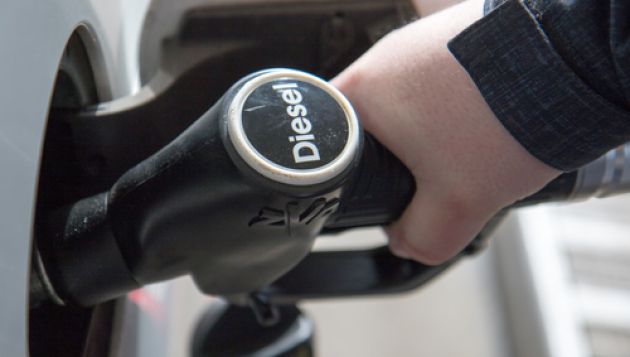odels
New research published by Transport & Environment (T&E) concludes that the average diesel car may produce more CO2 over its lifetime than a comparable petrol-engined vehicle, reversing the accepted position of emissions analysts.
The new results take into account factors such as well-to-wheel fuel emissions and vehicle production, as well as the higher average mileage covered by diesel cars compared to petrol models.
In total, the average diesel is predicted by T&E to produce 42.7 tonnes of CO2 over the course of its 113,000 mile lifetime, compared to petrol's 39.0 tonnes during 109,000 miles, an increase of 3.7 tonnes which roughly represents a year's motoring by an average car.

Image courtesy of T&E
With diesel's already recognised poor air-quality performance (including vehicle emissions such as NOx and PMs), if true, countering the fuel type's lower CO2 emissions removes one of the few attributes going for the fuel.
T&E criticises European governments for creating a diesel dominated market in the region, which is in stark contrast to the rest of the world where diesel sales are relatively niche.
Across the EU, the last two decades have seen a large number of incentives for diesel, such as lower diesel fuel duty and company car tax benefits, which have together pushed diesel car sales to levels not seen in any other region. 70% of all global diesel car and van sales are now in Europe with the rest of the world only representing 7% total sales.
In the UK a similar picture emerged, though diesel sales until recently have for the past few years settled down at a little over half the new car market. In the past few months though, diesel sales have declined dramatically as the VW Emissions Scandal and concerns over air pollution have eroded consumer confidence in the fuel.
At the same time, improvements in petrol engine technology, hybrid powertrains, and increased choice of plug-in models has seen increases in market share, with alternatively-fuelled cars the greatest beneficiaries of diesel's decline.

Image courtesy of T&E
Currently, the UK charges the same fuel duty for diesel as it does petrol, and the new VED costs (introduced in April 2017) now even out the incentive for buyers of petrol and diesel cars - even if they are a step backward in promoting electrified vehicles.
Also, company car tax, which like VED is based on official CO2 figures, has a diesel supplement to level out costs over petrol models, though this was to make sure the Treasury didn't lose out on too much income as diesel models often make greater financial sense than petrol from a fleet perspective.
T&E follows Next Green Car's line that electric is the only way forward, finishing its report summary by saying: "The future is electric with Europe either joining the flow or drowning in diesel's dirt."
With the latest findings from T&E, Next Green Car will review its data used across its emissions calculators for petrol and diesel cars. While the unique NGC Rating already takes into account both whole life and real-world emissions, the latest research and data driving our tools is constantly in review.
You can read the fully report of 'Diesel: the true (dirty) story' on T&E's website. Alternatively, find out the life-cycle emissions and NGC Rating for specific models by using the tool linked below.

